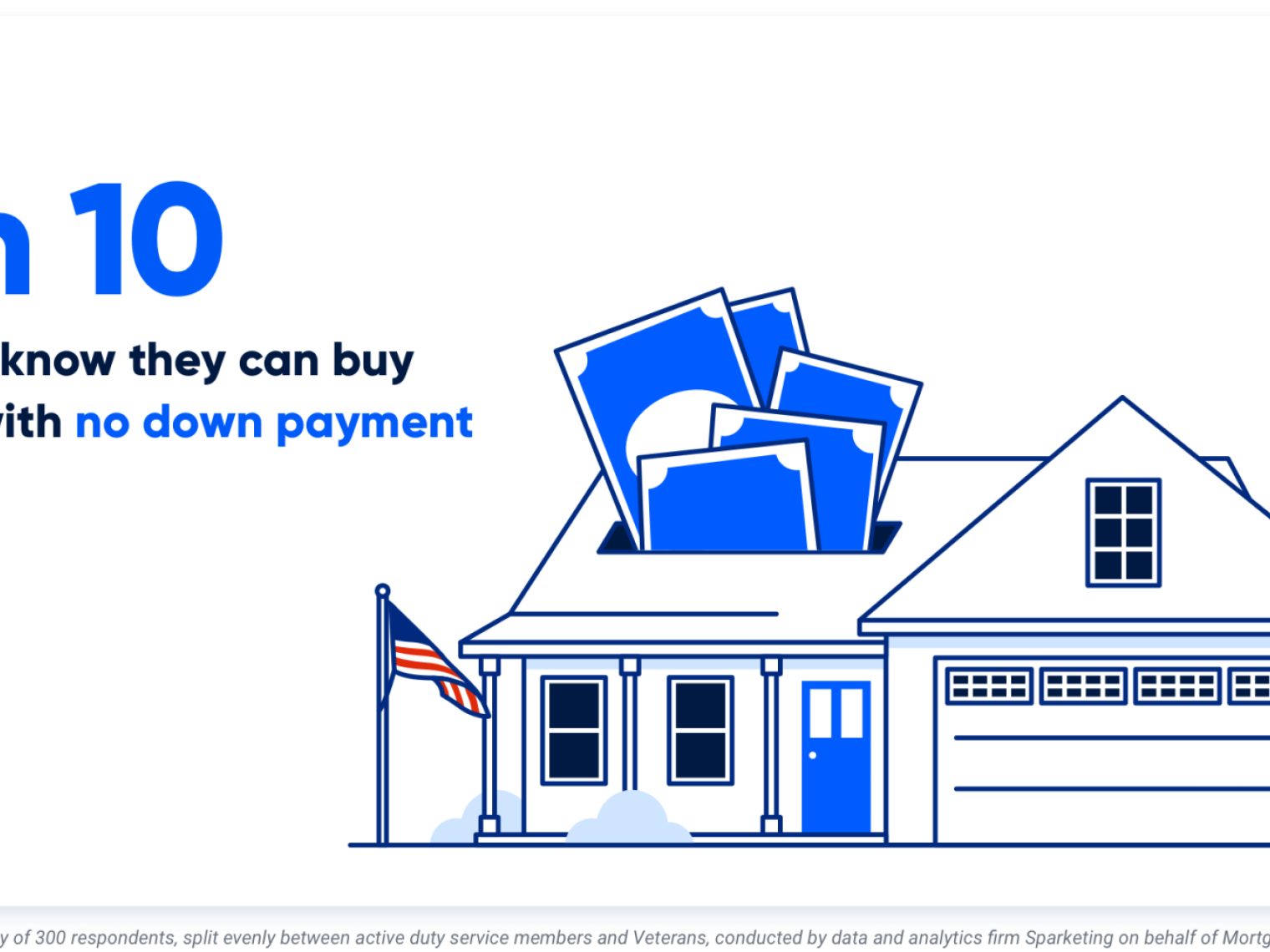Credit plays a huge role in the VA loan process. Fortunately for Veterans and active-duty service members, VA loans feature relaxed credit requirements when compared to conventional loan programs.
Wondering what lenders will expect from a VA loan applicant? Take a look at these four questions that will definitely pop up during the credit evaluation.
1. What is Your Credit Score?
Credit score cutoffs can vary, but a credit score minimum of 620 is common among most VA lenders. There are two important factors to note here:
- The credit score a consumer sees is often different from the credit score a lender sees. VA lenders use a unique scoring formula, weighing your score for mortgage-related factors.
- Most lenders require credit scores from at least two different agencies, and those scores can differ. If two scores are used, lenders will typically rely on the lower of the two scores as your official score. If three scores are used, the middle score is used.
So it’s possible for a borrower to see a consumer score of 665 and assume all is well. Only upon applying for a loan does a borrower learn that the lender views their score as 615.
The best way to know if your credit score meets a lender’s criteria is to simply ask. Through prequalification or preapproval (neither of which are binding), a loan expert can determine if credit scores are satisfactory or in need of work.
2. Do You Have Any Collections, Charge-Offs or Judgments?
Lenders want to know their borrowers will honor their financial obligations and pay them back in a timely manner.
The VA gives lenders leeway in how they handle a Veteran with derogatory debt, such as collections, charge-offs, judgments and liens. Most VA lenders place a cap on the amount of derogatory debt a Veteran can have. Debt above that cap will be carefully analyzed by underwriters and could trigger loan denial.
Also keep in mind that if you’re delinquent or in default on any debt to the federal government, your VA loan application is almost certain to be denied.
That’s not to say that all federal debt will encourage a VA loan denial. For example, Veterans can have student loans and qualify for a VA loan, but it’s important that the account is current and in good standing.
If you have student loans and are looking to obtain a VA loan, check out this article on VA loans and student debt.
The best way to handle collections or judgments? Set up a manageable payment plan. VA lenders would much rather see an applicant managing their debt than ignoring their debt.
3. Is There a Foreclosure, Bankruptcy or Short Sale in Your Past?
If you’ve been through a recent foreclosure, short sale or bankruptcy, a VA lender will likely enforce the following waiting periods before considering your VA loan application:
- Chapter 7 bankruptcy: Typically two years from the discharge date
- Chapter 13 bankruptcy: Typically 12 months from the date filed
- Foreclosure/short sale: Typically two years from the completion date
Keep in mind the waiting period is usually much shorter with a VA loan than other loan options. But don’t forget you’ll have to do more than endure the waiting period. You’ll also need to show excellent credit habits since the bankruptcy or foreclosure and maintain steady income. Regardless, a VA loan after bankruptcy is still possible.
4. Is Your Income Sufficient and Stable?
If you have an erratic employment record or a widely-varied income, you might have a rough road ahead of you. VA lenders want to know that you'll have enough income to pay your mortgage. An unstable income or gaps in employment history could easily give your lender the impression you’re not ready for a VA loan.
To put it simply, you have to make enough money to cover the basic costs of living plus a mortgage. And when it comes to employment, the longer you’ve been employed, the better. Retired and disabled Veterans are exempt from the employment criteria, but still need to earn enough household income (for example, through a spouse’s income, disability earnings or pensions) to manage a mortgage.
Have questions?
Want to talk over your options? Have a question about your VA loan eligibility? Feel free to post your questions below, and remember: You can always reach a Veterans United VA loan expert at 855-870-8845.
Related Posts
-
 VA Loan Down Payment RequirementsVA loans have no down payment requirements as long as the Veteran has full entitlement, but only 3-in-10 Veterans know they can buy a home loan with zero down payment. Here’s what Veterans need to know about VA loan down payment requirements.
VA Loan Down Payment RequirementsVA loans have no down payment requirements as long as the Veteran has full entitlement, but only 3-in-10 Veterans know they can buy a home loan with zero down payment. Here’s what Veterans need to know about VA loan down payment requirements. -
 5 Most Common VA Loan Myths BustedVA loan myths confuse and deter many VA loan borrowers. Here we debunk 5 of the most common VA loan myths so that you can borrow with confidence.
5 Most Common VA Loan Myths BustedVA loan myths confuse and deter many VA loan borrowers. Here we debunk 5 of the most common VA loan myths so that you can borrow with confidence.

